Reminders of Booknetic
Reminders feature of Booknetic. Multi-purpose Appointment Booking Plugin For Wordpress.
Reminders feature of Booknetic. Multi-purpose Appointment Booking Plugin For Wordpress.
The Reminder & Follow-Up Notifications feature in Booknetic ensures smooth communication before, during, and after appointments. Using the Workflow Module, you can automatically send messages via Email, SMS, WhatsApp, Telegram, or even trigger Webhooks to connect with external apps.
This flexibility helps reduce no-shows, keeps staff prepared, and engages customers after their visits.
Reduce no-shows by reminding customers before their bookings.
Prepare staff with alerts before their sessions.
Engage customers afterward with thank-you messages, invoices, or review requests.
Automate timing with precise before/after triggers for both booking start and booking end events.
Integrate with external apps by sending data through Webhooks (Zapier, IFTTT, CRMs, Google Sheets, Slack, etc.).
Personalize communication using dynamic shortcodes for appointment details.
Notifications and webhooks are managed in the Workflow Module, which operates on two key events:
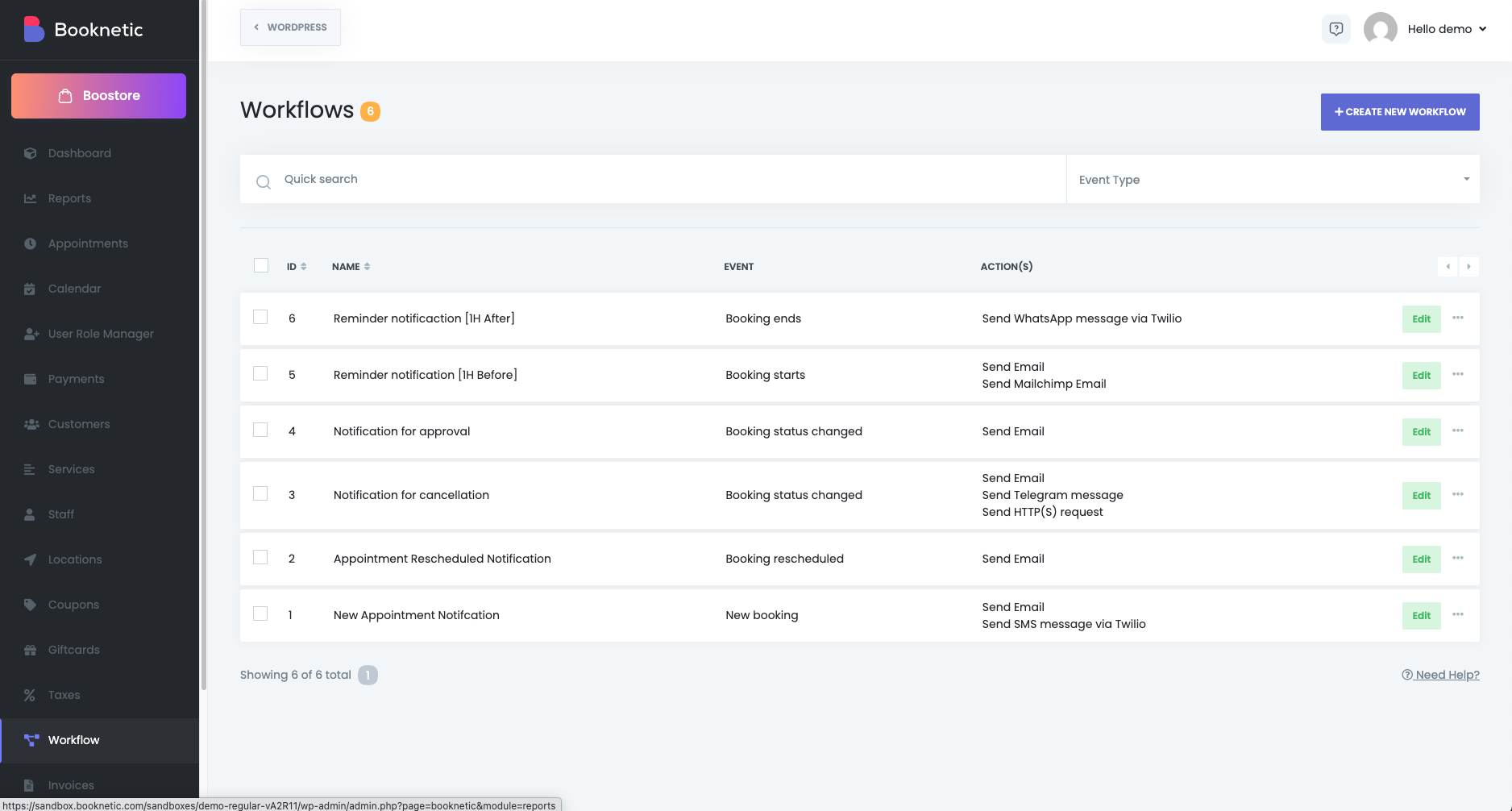
Booking starts → When the appointment begins.
Booking ends → When the appointment finishes.
For both events, workflows can run Before or After the event with a custom offset:
Minutes
Hours
Days
This allows you to:
Send reminders before booking starts.
Trigger in-session updates after booking starts or before booking ends.
Send follow-ups after booking ends.
Trigger Webhooks at any of these times to connect with third-party tools.
Go to Booknetic → Workflows → Create new workflow. Name your workflow (e.g., Customer Reminder – 1 Hour Before or Feedback Request – 1 Day After).
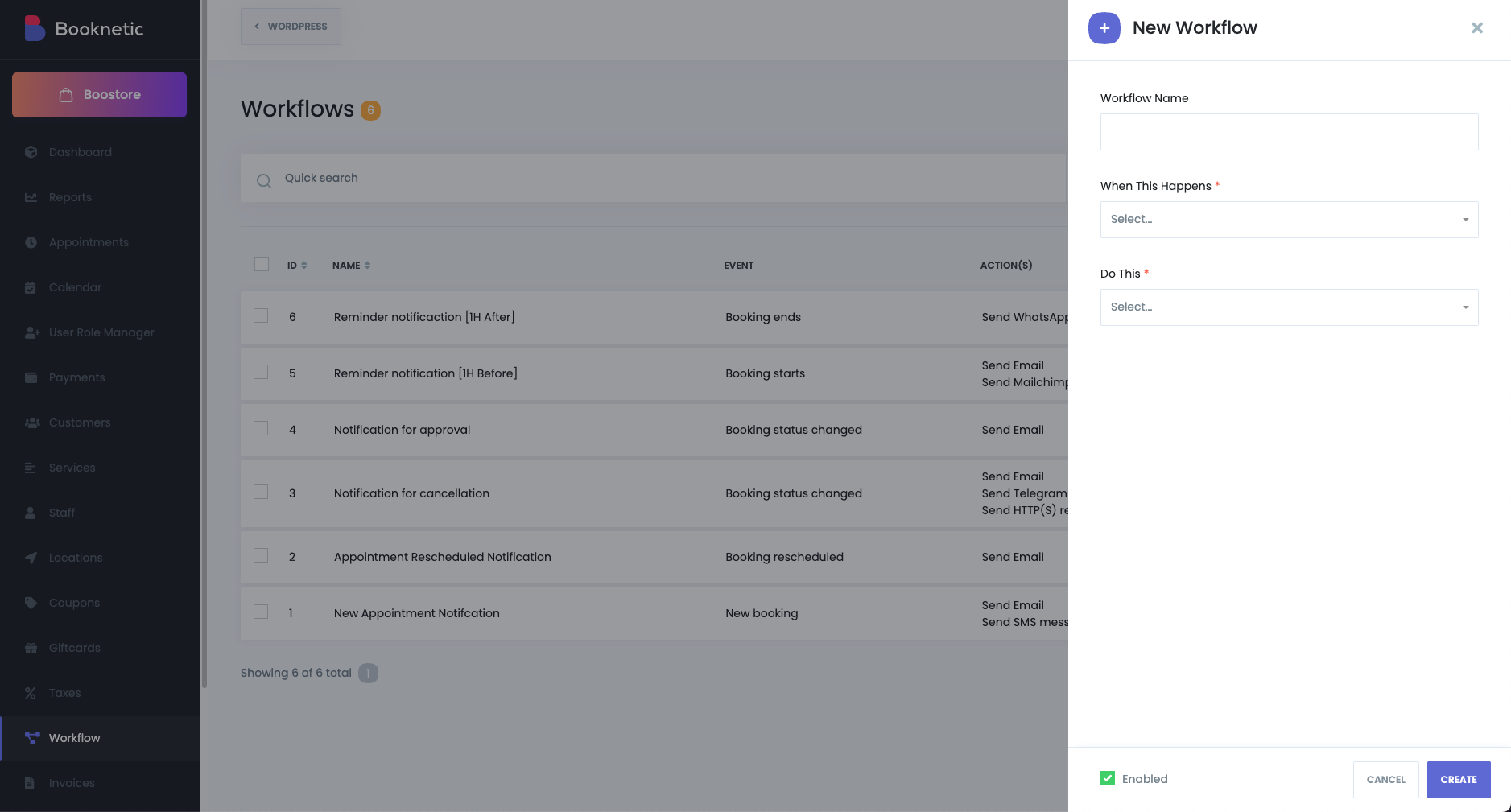
Select Booking starts or Booking ends.
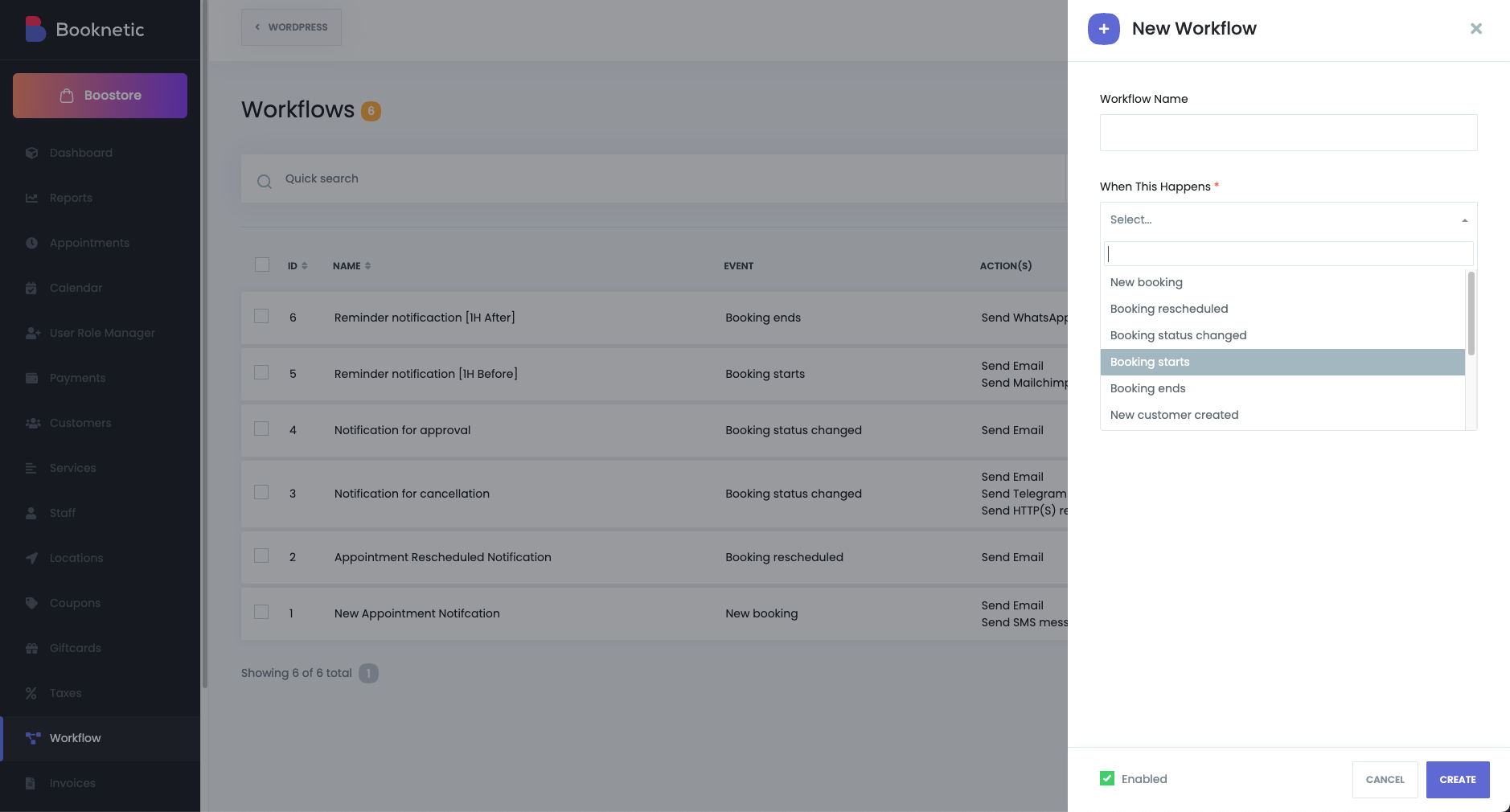
Choose Before or After.
Enter a number (e.g., 1).
Select the unit (Minute / Hour / Day).
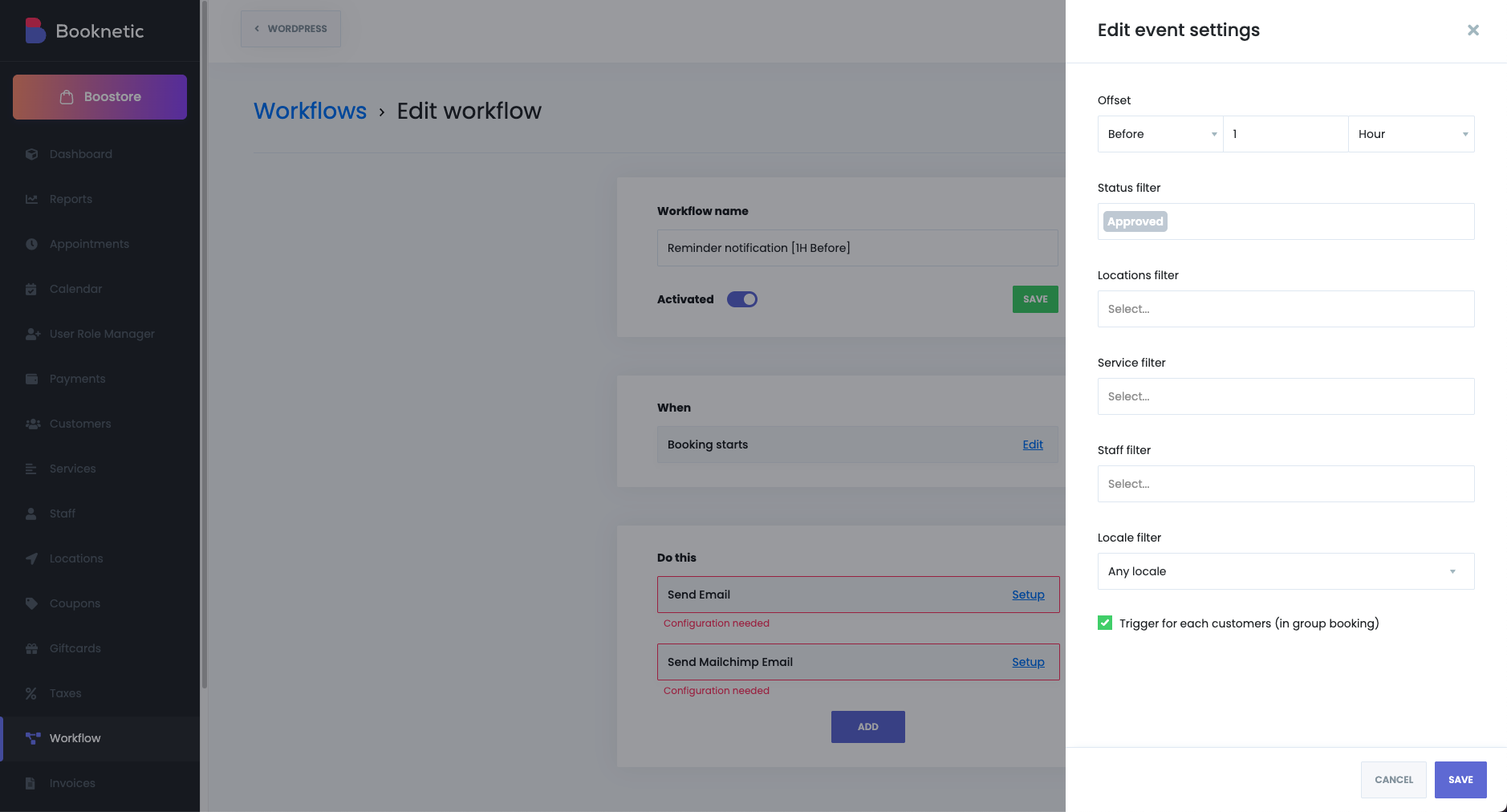
Examples:
Booking starts → Before → 1 Day → Reminder email 24h before.
Booking ends → After → 1 Hour → Feedback request email 1 hour after.
Booking ends → Before → 10 Minutes → Alert staff to wrap up session.
Status filter – Send only for Approved appointments.
Location filter – Target a specific branch.
Service filter – Apply only to selected services.
Staff filter – Trigger for chosen staff members.
Locale filter – Send messages in the customer’s booking language.
Group bookings – Enable Trigger for each customer so all participants receive notifications.
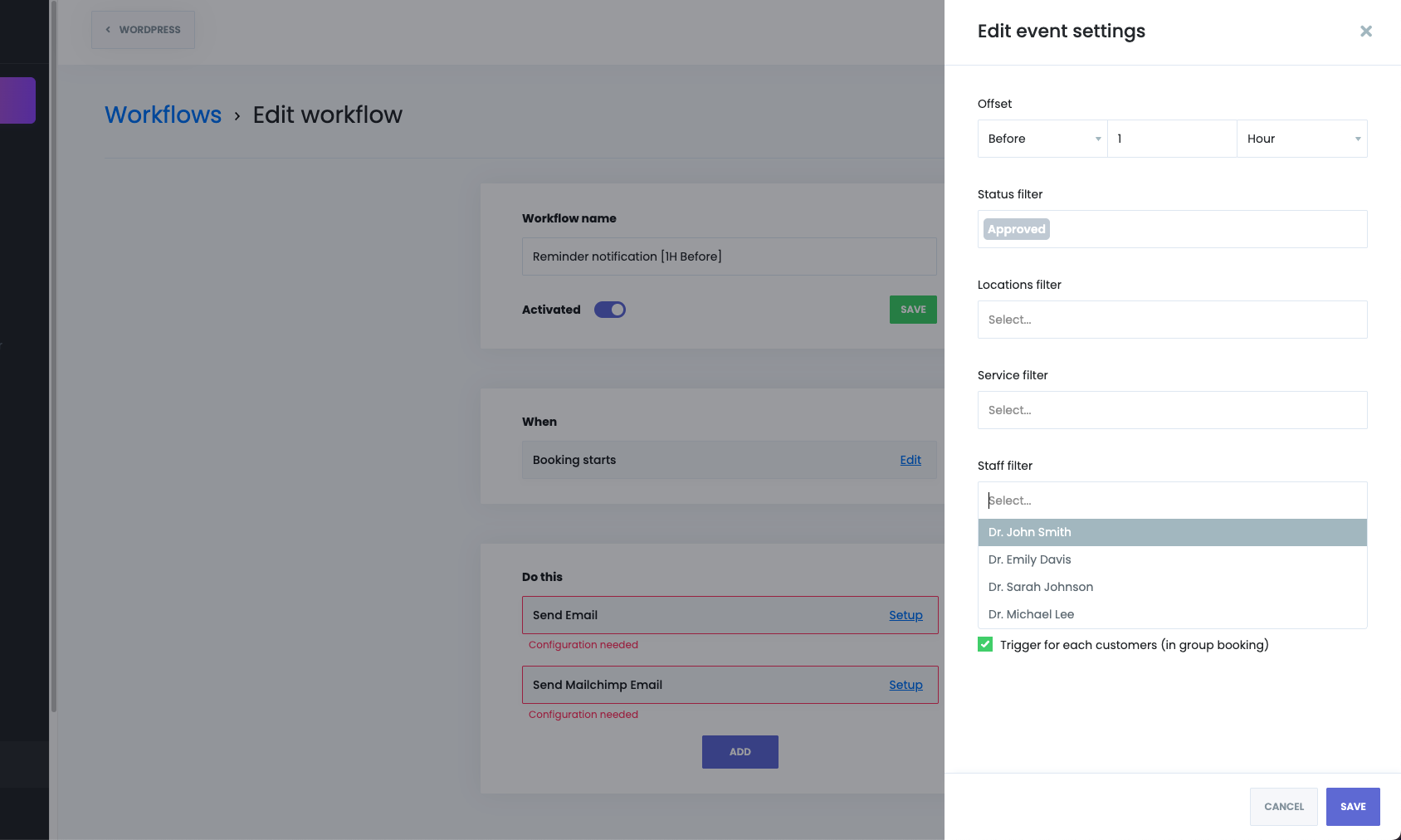
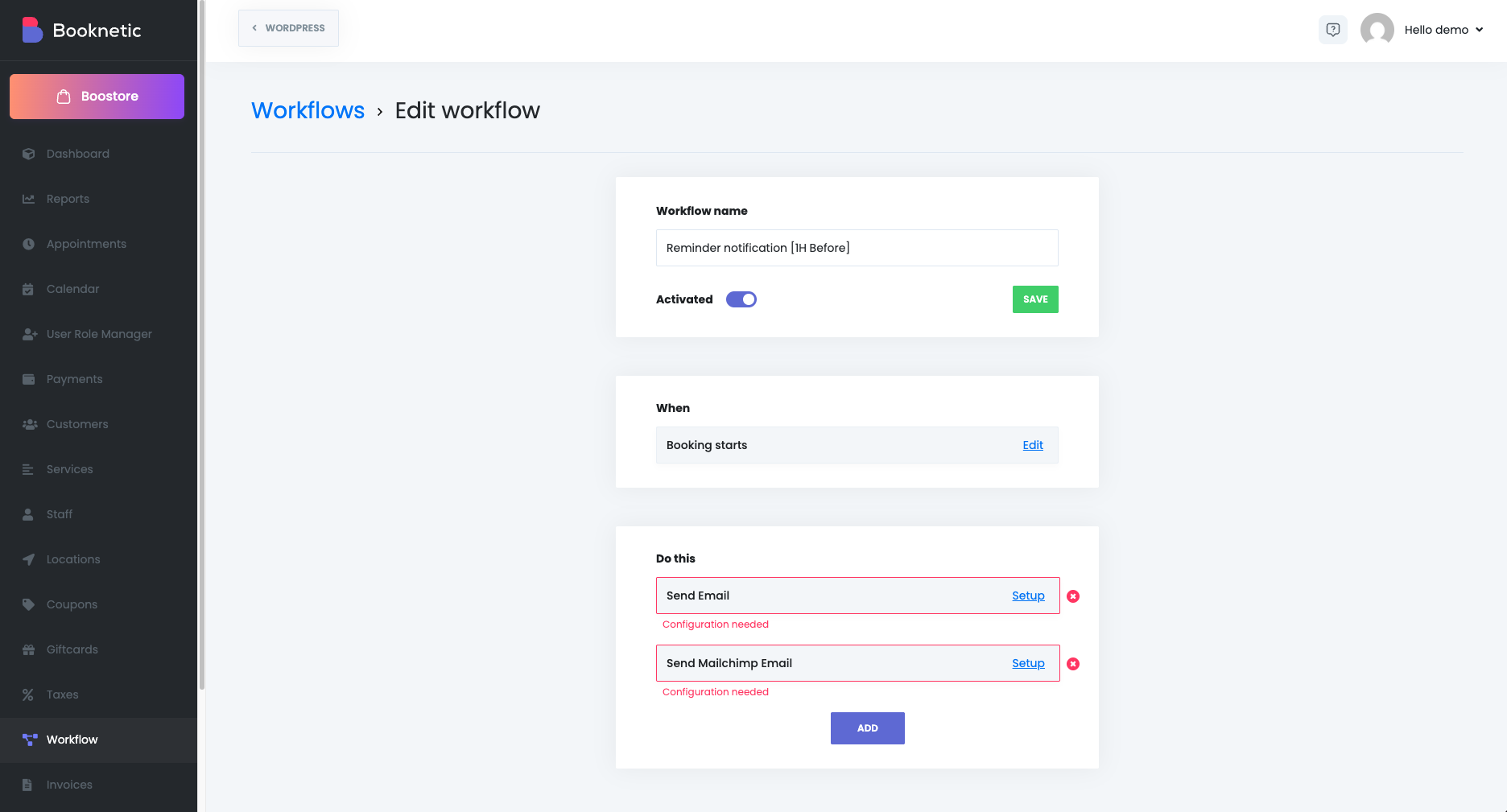
You can choose one or multiple actions:
Send Email
Send SMS
Send WhatsApp message
Send Telegram message
Send Webhook request (HTTP/HTTPS request to an external system)
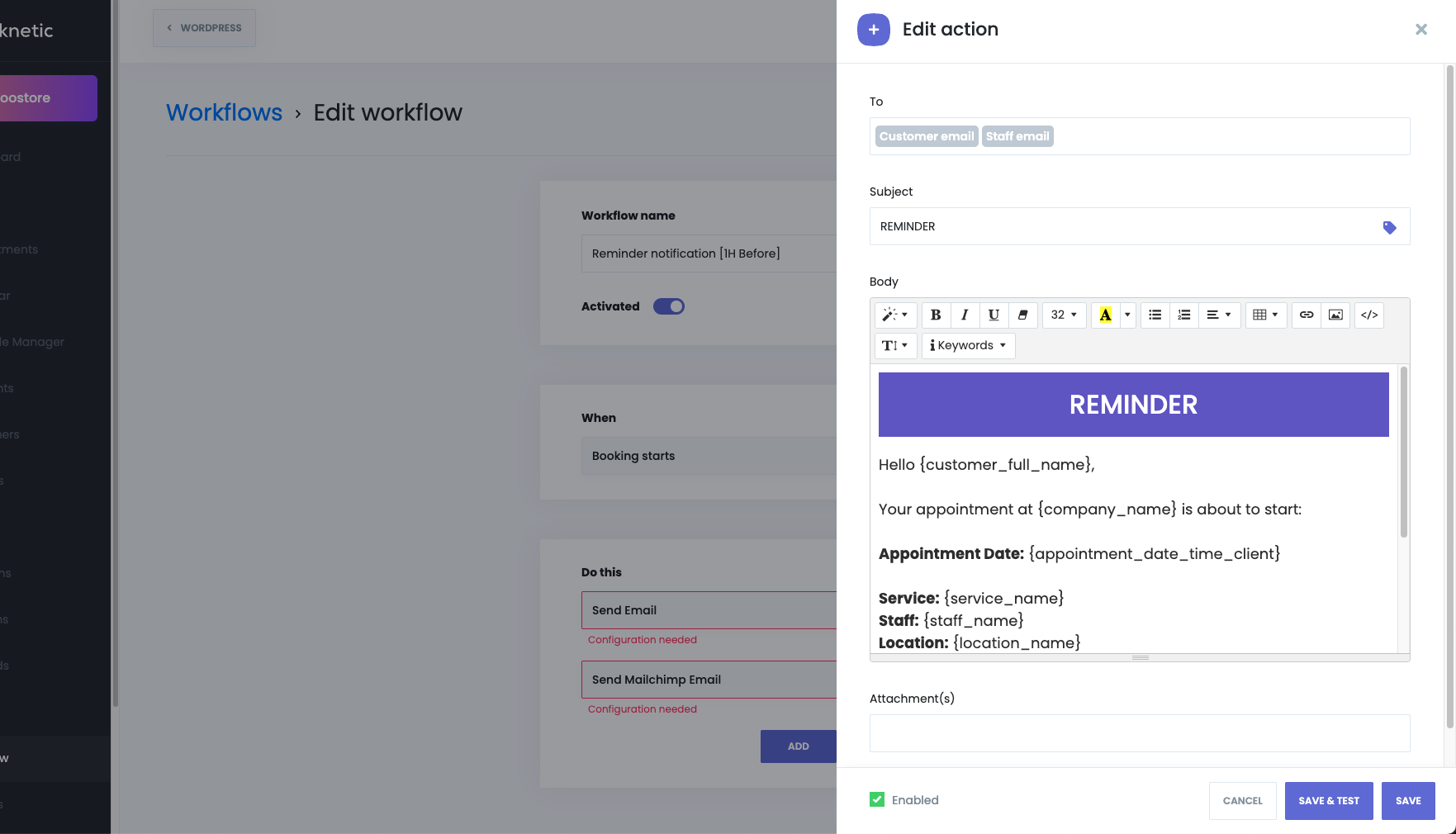
When using Webhooks, you can:
Select a request method (GET, POST, PUT, DELETE).
Enter a target URL (shortcodes supported).
Add form data, headers, or parameters.
Example: Send a POST request to Zapier an hour before an appointment starts.
For notifications: Customize the message using shortcodes like {appointment_date}, {staff_name}, {zoom_url}, etc.
For webhooks: Add body fields or headers with shortcodes so appointment details are sent to your external system.
Click Save and make sure the workflow is set to Enabled.
Reminder (Booking starts → Before)
Send SMS 24 hours before appointment.
Email staff 2 hours before with customer details.
Trigger a webhook to Slack to notify the team 15 minutes before the meeting.
In-session (Booking starts → After OR Booking ends → Before)
Email admin 5 minutes after a session starts.
Trigger a webhook to Google Sheets to log attendance 10 minutes before session ends.
Follow-Up (Booking ends → After)
Send thank-you email 30 minutes after.
Request feedback 1 day later.
Trigger a webhook to CRM to update customer record after the session ends.
Use multiple reminders – Example: 24h before + 1h before.
Combine channels – Send an email to the customer, SMS to staff, and a webhook to your CRM in one workflow.
Apply filters – Ensure reminders only go to relevant services or statuses.
Test carefully – Use “Save & Test” (shortcodes won’t populate without real booking data).
Reminder and follow-up notifications (and scheduled webhooks) are powered by scheduled tasks.
For them to run automatically at the correct time, you must configure a cron job on your server.
If the cron job is not set up, notifications and webhook actions may not be sent on time.
Please see our detailed guide on setting up cron jobs here: Cron Job Documentation